“Any car aficionado worth their salt simply has to come here: Goodwood is a mecca for fans. Everything is driven here – from the oldest to the most modern cars, from rally cars to endurance racers. Fans can even see the cars and their drivers up close”, says someone who obviously knows what he’s talking about: Professional rally driver and Porsche development driver Walter Röhrl knows every such event across the world and has visited this event often enough to be able to rate the “Festival of Speed”. Over the weekend of July 13–15, this year more than 200,000 motorsport fans once again made the pilgrimage in the hot summer weather to Duke of Richmond’s estate. For 25 years the Duke has hosted one of the world’s premier events for historic and modern racing cars and supercars in his expansive front garden, with an eye for style and close involvement in the carefully selected exhibits.
Goodwood – the centre of the racing world
It is pure coincidence that Goodwood’s silver anniversary coincides with the 70th birthday of the Porsche brand – but it is no coincidence that the British are particularly eager to celebrate the German sports car manufacturer. It is clear from the moment you first lay eyes on the sculpture in front of Goodwood House, which is redesigned each year to honour a particularly celebrated brand. The sculpture was created by artist and designer Gerry Judah, who for almost 21 years has been responsible for the breath-taking constructions in the centre of the circular gravel driveway of the Duke’s residence. This year, he devised a 52-metre-high structure designed to look like a firework, frozen in the air. The “stem” measures just twelve centimetres in diameter, and splits into seven tapering “branches”. Six of the branches feature (fully functional!) icons from the history of Porsche: an original 356 Coupé, a 911, a 917, an LMP-model, as well as the 918 Spyder and the 1986 959 Paris Dakar from the Porsche Museum.
“The ‘Festival of Speed’ is the epicentre of motorsport fandom”, says Alexander Klein, Manager of Vehicle Management at the Porsche Museum. “All of our cars carry motorsport genes. So it is both a duty and an honour to be allowed to present them here. The level of the drivers and of the cars is very high. In this respect, Porsche and Goodwood are perfectly suited to each other – sportiness and quality meet here on equal footing”.
Of course, as Porsche was celebrating the most important anniversary at this year’s “Festival of Speed”, they presented the most impressive collection of unforgettable vehicles – both in the paddock and on the track. In addition to the two examples high above Goodwood House, the museum brought along another 19 iconic vehicles – including the 961 from 1986, the racing version of the 959 and the first all-wheel-drive Porsche vehicle entered in Le Mans, as well as the 962 C, the winning car from Le Mans 1987. Nicknamed the “Moby Dick”, the 935/78 – the 845-hp 911 derivative from 1978 that was the first to feature water-cooled cylinder heads – took part in the hill climb on the nobleman’s estate, as did the 911 “Paris Dakar” from 1984, which took overall victory at what was at the time the hardest rally in the world. The successful 1994 Dauer 962 GT Le Mans was just as fascinating as the GT1 98, the first Porsche racing car with a carbon chassis, as well as the RS Spyder, with which Porsche brought all available titles at 2005 American Le Mans series home to Zuffenhausen.
Porsche entries in the Formula class were also represented – the 804 Formula One racing car that Dan Gurney drove to victory in the 1964 French Grand Prix, as well as the 1988 Porsche 2708 Indy car with 750-hp V8. The 911 Carrera RSR Turbo, which has been in restoration for many years, was on dynamic display for the first time. It was the first racing 911 to be equipped with a turbocharger. It took second place at Le Mans in 1974. Speaking of debuts: In the year 2000, Porsche presented the LMP prototype to the public for the first time – in that year, engineers produced the car for the LMP1 class of the classic endurance race, but the Porsche Executive Board at the time did not give permission for its use. Since then, this high-speed automobile has lain dormant in the museum reserve.
And as if all that wasn’t enough, the iconic 356 “No.1” Roadster of course also made an appearance on the runway – the first Porsche 356 ever built (with a mid-engine!). It was flanked by the meticulously restored 911 Number 57, a 911 Carrera RS, one of the original 959s, a 911 turbo (993) from 1997, the much-vaunted Carrera GT from 2003 and a fascinating 918 Spyder from 2015.
The original class winner of Le Mans 2018, the “Pink Pig” 911 RSR, represents where Porsche stands today – the 911, with a paint job as striking as it is historic, won this year’s GTE-Pro class. Of course, the collection would have been incomplete without the record-breaking 919 Hybrid Evo, in which Timo Bernhard recently set a new record time of just 5:19.55 minutes on the Nordschleife. The previous record of 6:11.13 minutes, set by racing driver Stefan Bellof in the Porsche 956, had stood for 35 years.
After all – what are the best and fastest racing cars without their drivers? Certainly not nearly so successful. That is why Porsche invited a who’s who of current and former leading drivers – including factory drivers Kévin Estre, Laurens Vanthoor and Neel Jani, as well as legends Hurley Haywood, Derek Bell, Mark Webber and Richard Attwood – to dynamically present the iconic vehicles to the expert audience at Goodwood.
Rudi Lins – a Porsche factory driver at the end of the 1960s and a specialist in both hill climbs and long-distance driving – made his second visit to Goodwood and took the 962 up the hill climb: “That was so much fun. Even though I could only use the first and second gear on such a powerful car. We don’t have any hill climbs as short as this one in Austria”. But it was the start of the race that he found particularly exciting: “The Marshall told me: ‘Warm up your tyres’, so I drove off with the wheels spinning. It worked perfectly”.
962 C, the 1987 Le Mans winning car
Günther Steckkönig, a test and racing driver for Porsche from 1972 to 1987, drove the 961 – the exact model he helped develop during that period. “That was really good”, he said excitedly after just the first stint. “But when I sit in such an old car, I think: ‘Gosh, did you ever drive something like this at speed? That’s impossible’, but that was just how things were back then”.
Manfred Schurti from Liechtenstein drove the “Moby Dick” – and no wonder: During the 1970s, he was the Porsche 935 specialist and took it to eighth place at Le Mans in 1978. “This is my absolute favourite car”, he gushed about the long 911. “It was great to get this car moving again”. He was moved the crowds of enthusiastic spectators: “The English are totally crazy about motorsport. You can’t imagine this being such a spectacle anywhere else”.
The recently restored 911 Carrera RSR Turbo was piloted by Dutch all-rounder Gijs van Lennep. He would have liked to thunder up the slopes at high speed: “The car is only really at its best at around five and a half thousand revs, but with the Le Mans transmission, you can’t get out of first and second gear here”. But the goose bumps caused by the “Porsche moment” made up for it.
Günter Steckkönig, Gijs van Lennep, Rudi Lins, Manfred Schurti (l-r)
“Standing in a circle in front of Goodwood House with the music and the fireworks was something very special for me”, said Van Lennep, after experiencing the “Porsche moment” – created especially by the Duke to celebrate the anniversary of the sports car manufacturer. All of the Porsche vehicles – including those owned by private drivers and owners of cult cars such as the 356 A Coupé, 356 B Carrera Abarth GTL, 550 Spyder, 904, 908 “Flunder” and the “Flatnose” 935 K3 – were led one after the other in opposite directions onto the circular gravel driveway in front of Goodwood House. As the vehicles were parked, a small orchestra and a choir performed an anthem by Enya, while daytime fireworks were launched from the roof of the stately home.
A moment for eternity
The museum cars had already survived their own very special “Porsche moments”: “In this English heat, you can’t expect the cars to deliver everything we want from them at the touch of the button”, said Alexander Klein after the grand Porsche display at Goodwood. “Switching drivers and the different applications are stressful for man and machine. And Le Mans cars are not necessarily suited to gravel paths or uphill slopes. But Porsche can do it, and so can the drivers”.
In the end, even Walter Röhrl was impressed: ”I am convinced that there will not be another moment like this any time soon, where you can see all of these Porsche models in a single place. It was simply incredible”.
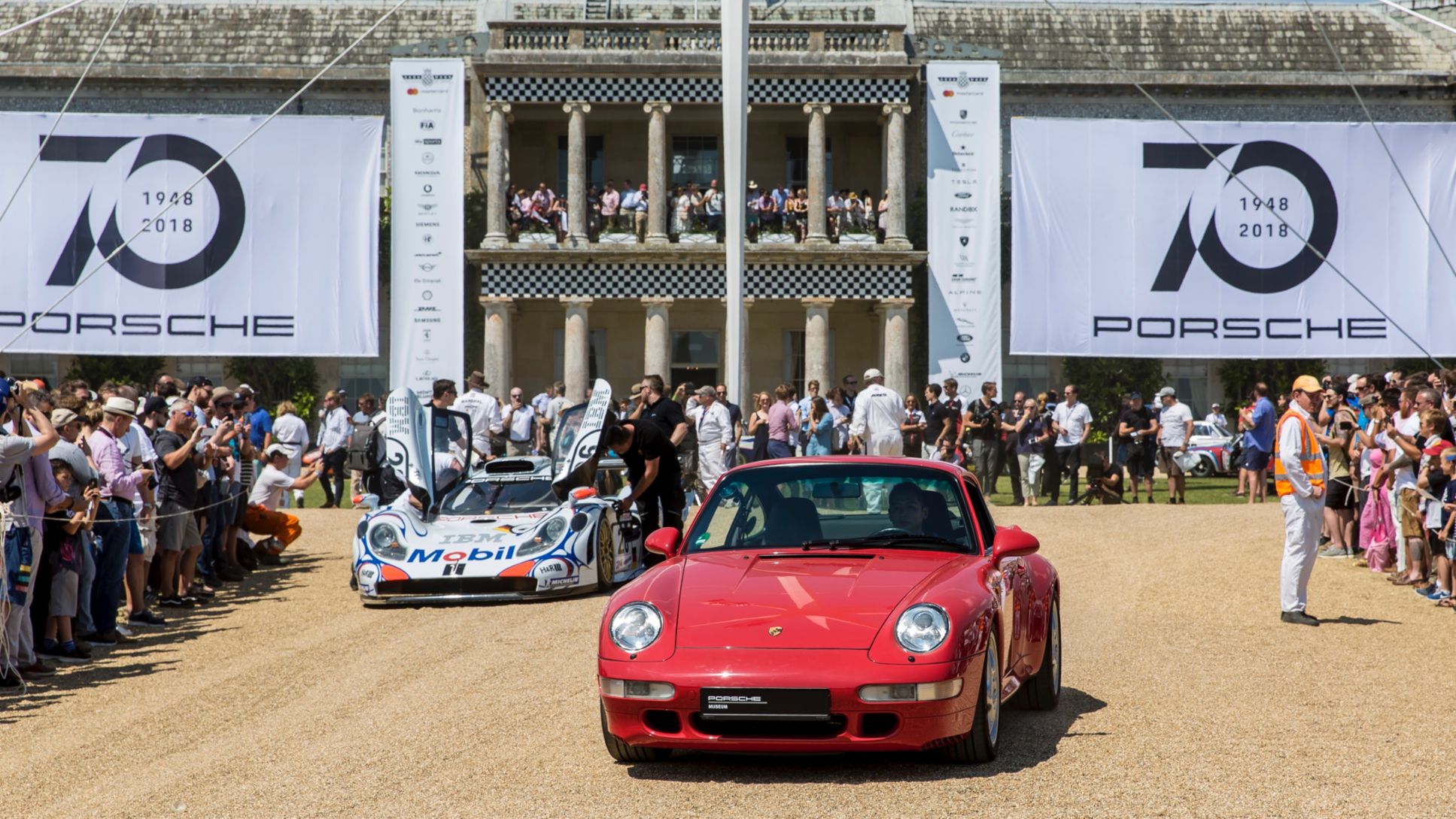
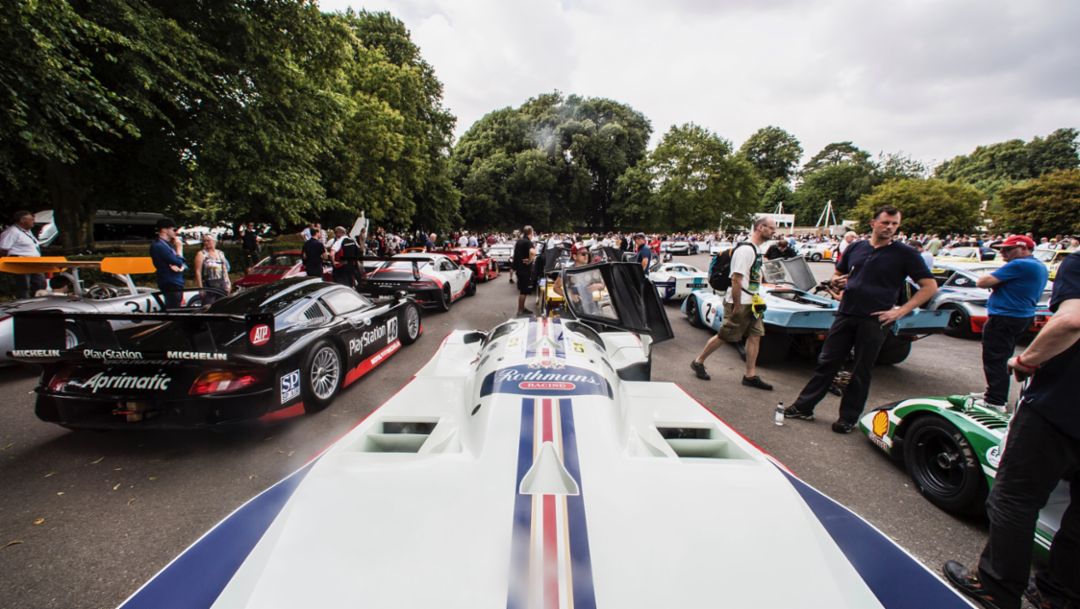
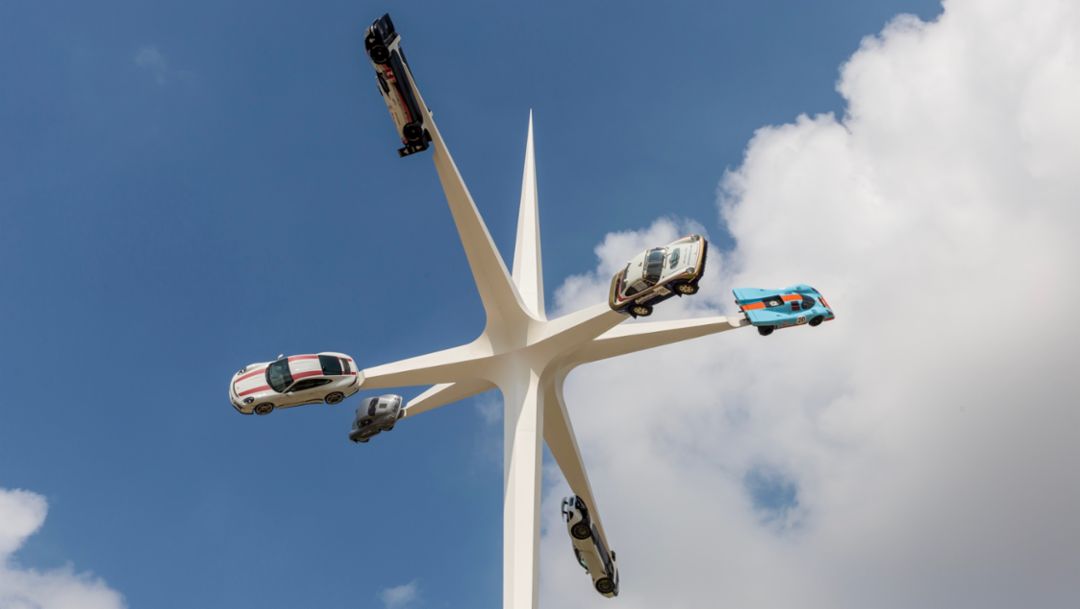
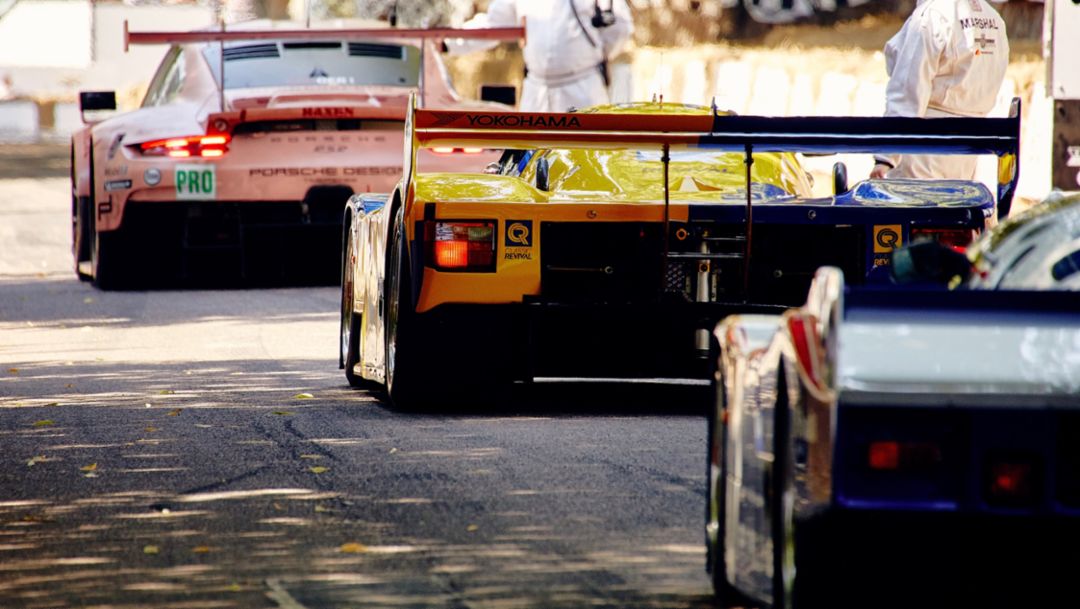
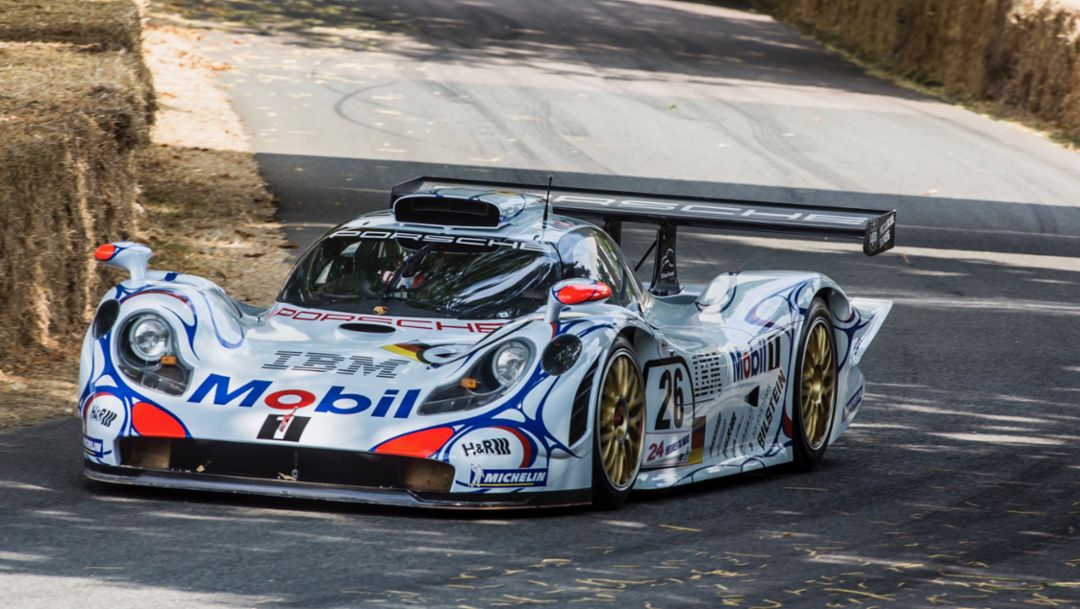
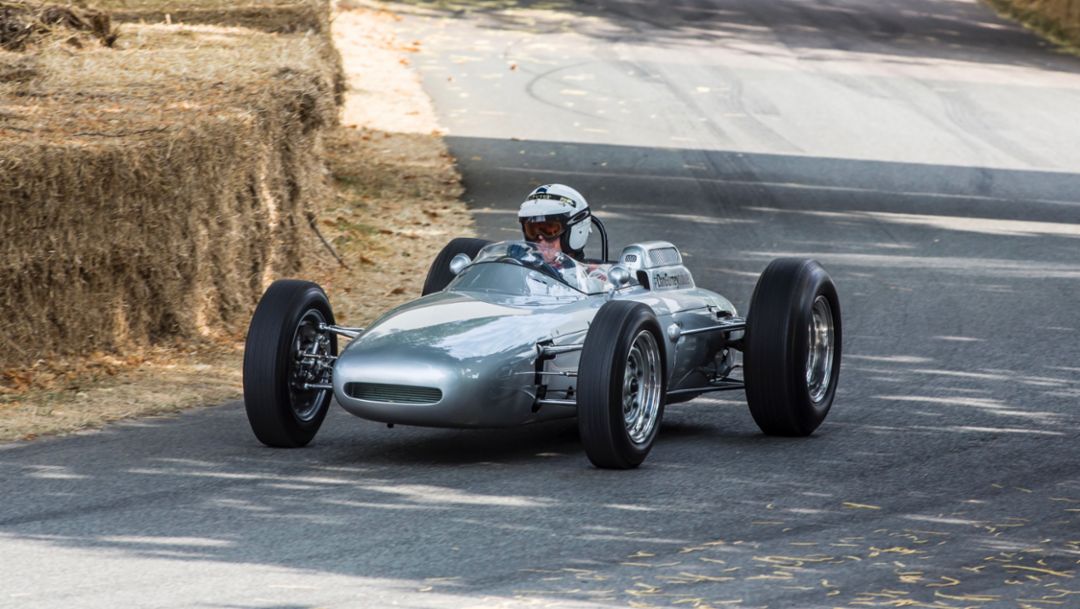
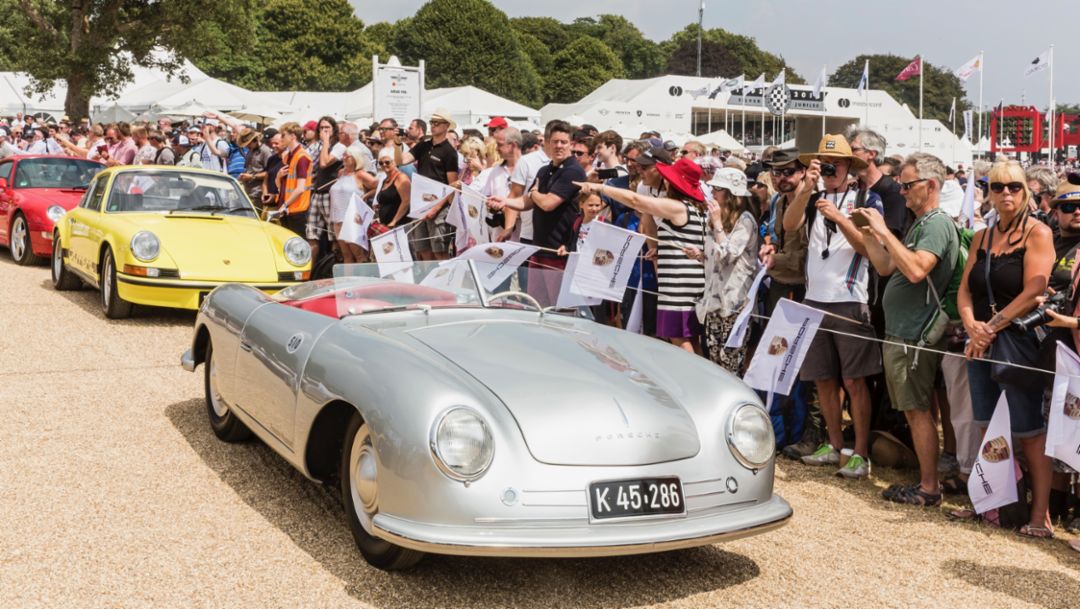
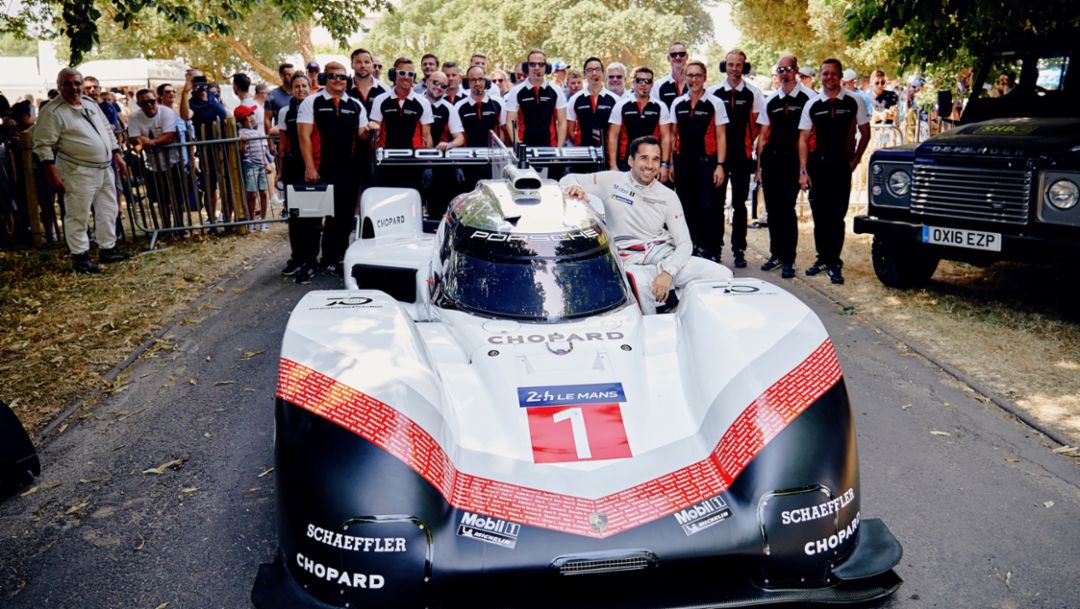
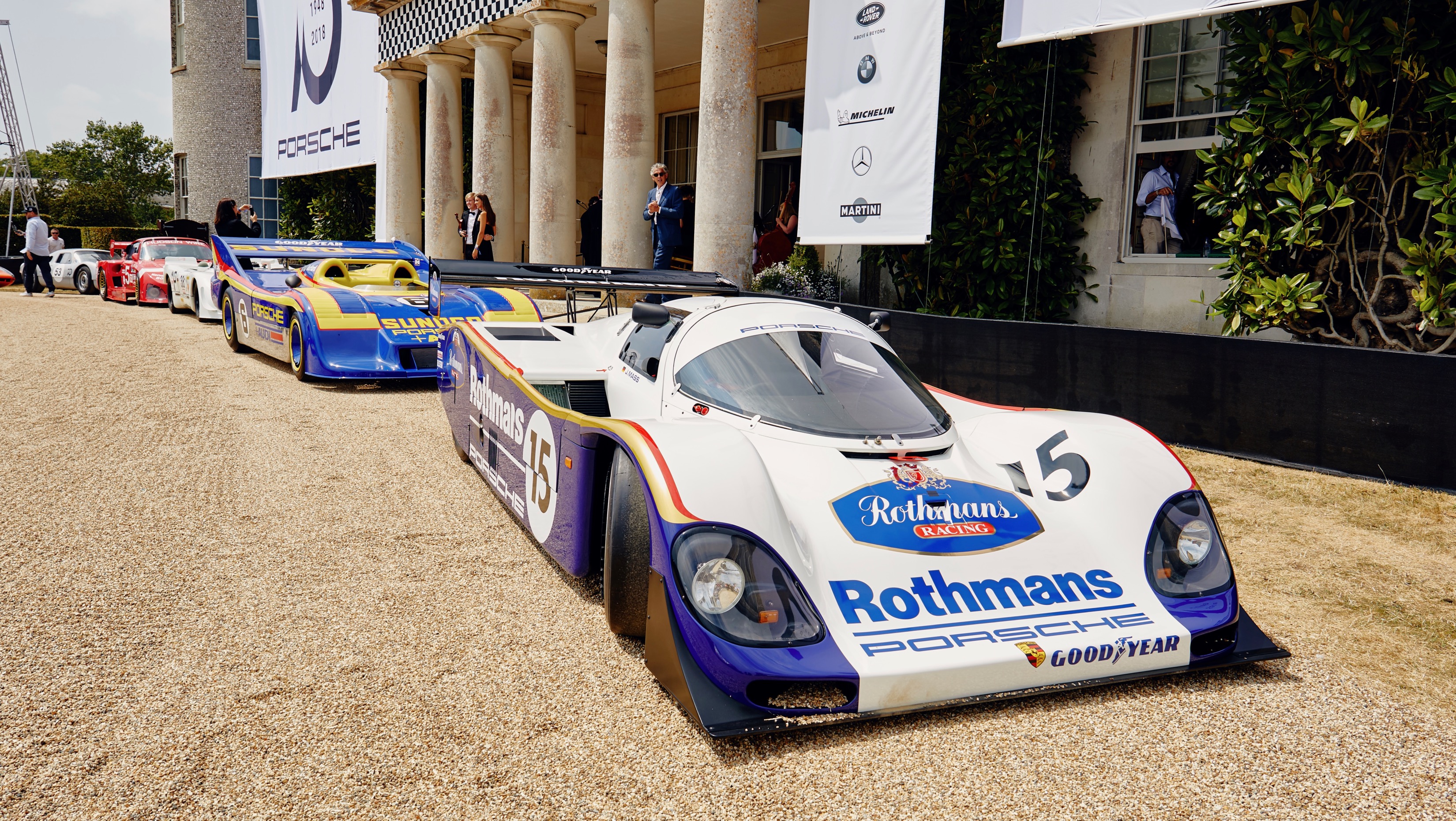

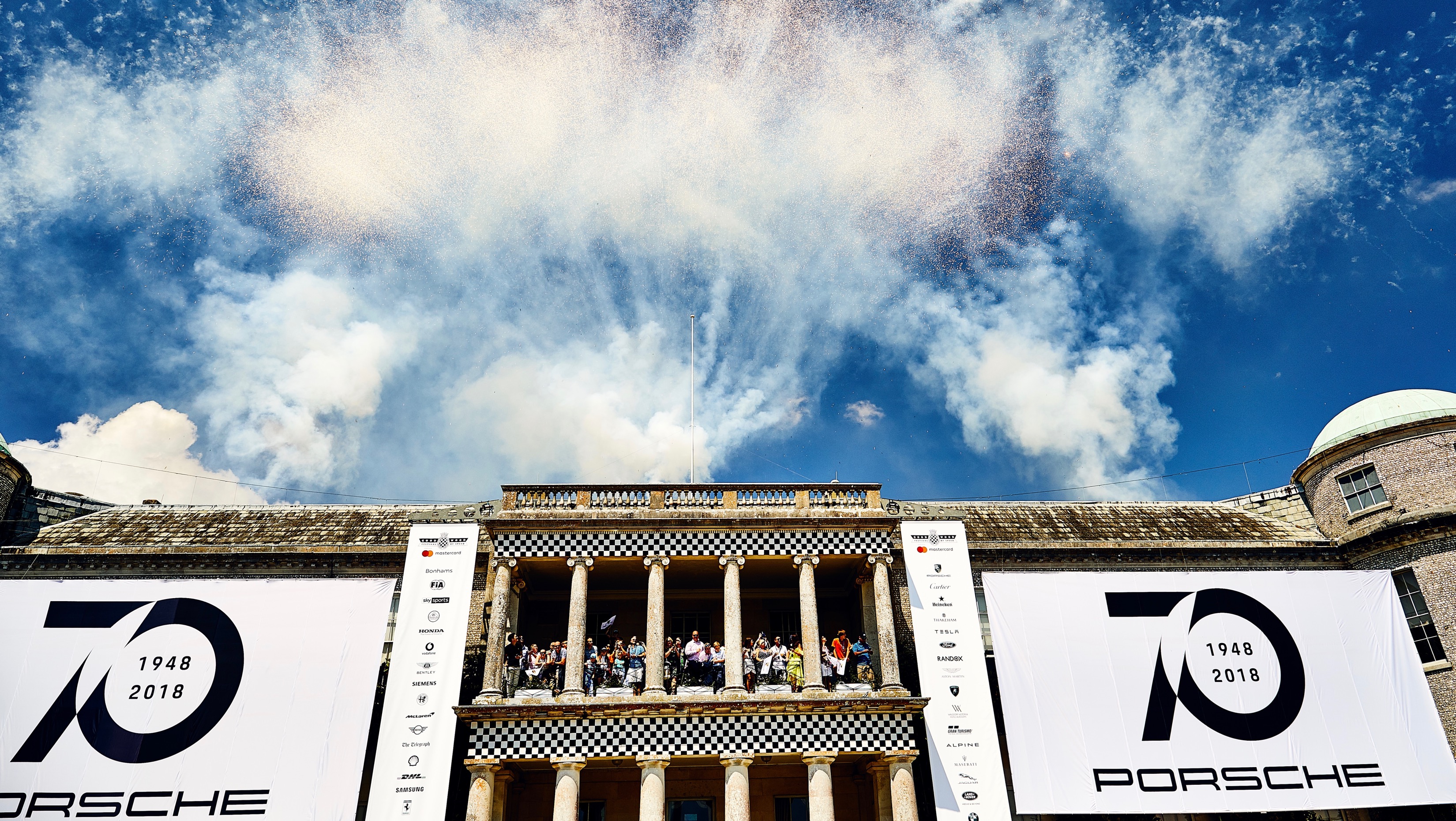
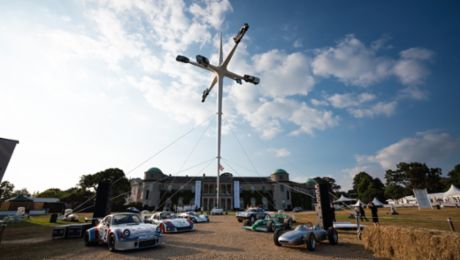
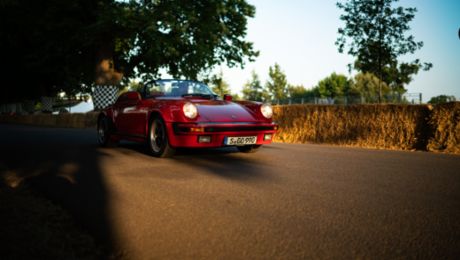
.jpg/jcr:content/b-Lead%20Image%202%20(1).jpg)